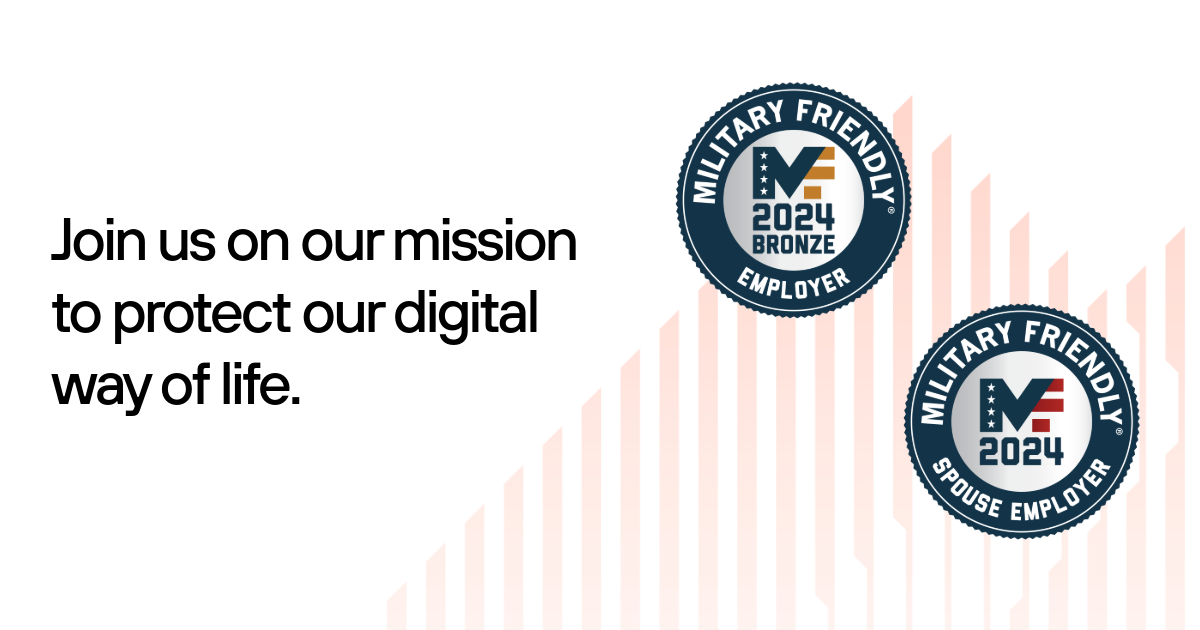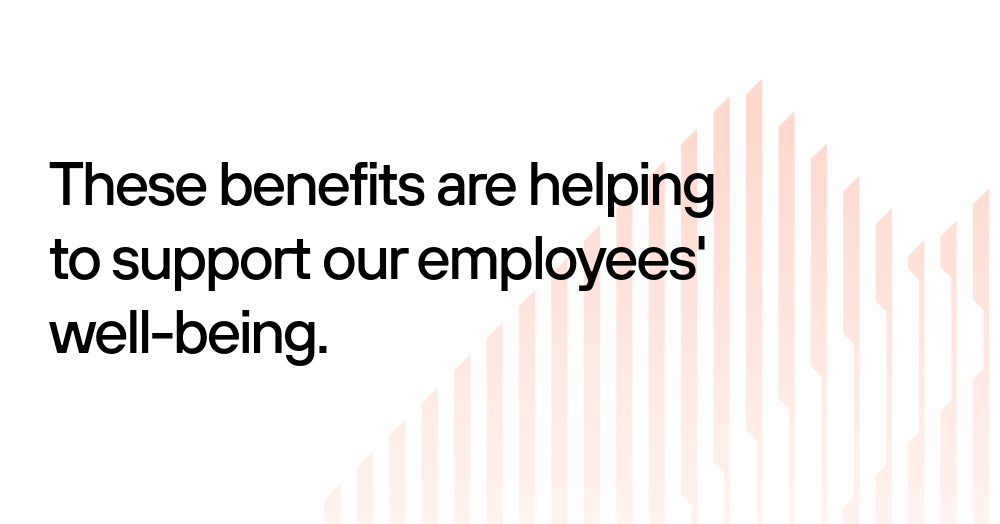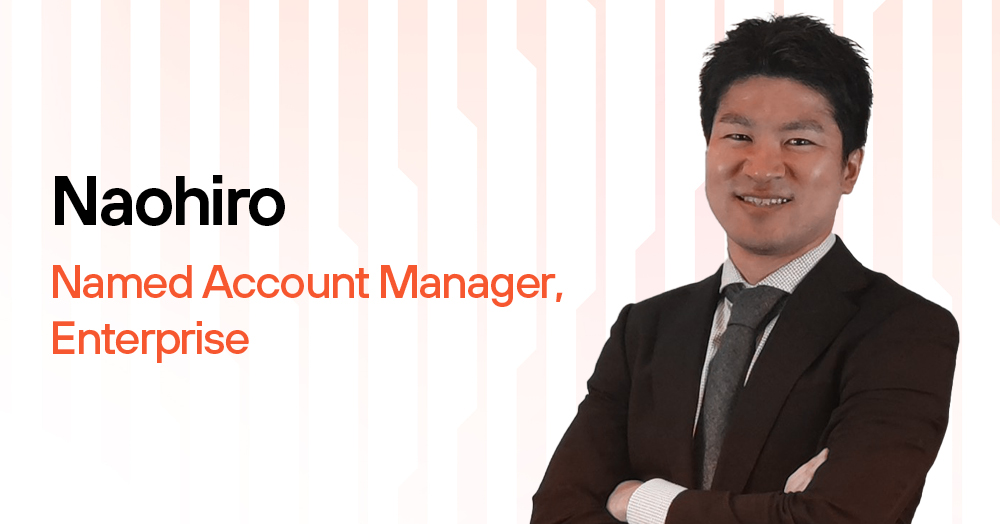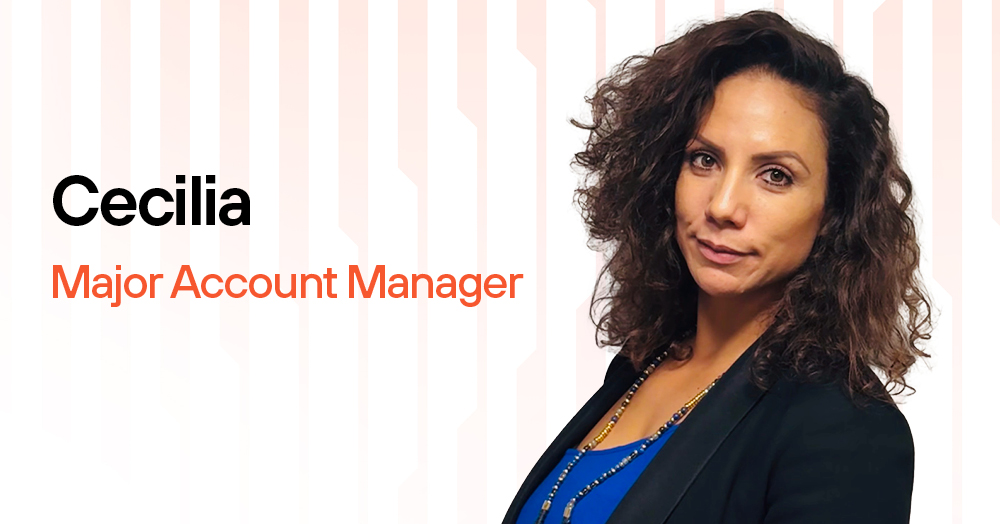
Thursday, December 19, 2024
Taylor’s Tips to Take You From College to Career
Leaving behind the world of lectures, exams and campus life to step into a full-time career is a significant milestone that’s simultaneously exhilarating and daunting. The transition from college student to working professional is a shift that comes with challenges and adjustments. It's a journey that requires adaptability, resilience, a growth mindset and lots of grace.
Whether you're about to embark on your first job or have recently taken the leap, I’m sharing some knowledge and tools that I have picked up along the way. From adapting to the dynamics of a new work environment to building meaningful relationships with colleagues and establishing a reputation that sets you on a path to success, I’ve got your back.
Challenges
First and foremost, going from college life to the professional world requires a shift in mindset. No longer are you focused on exams and grades; you're now responsible for tangible results in the workplace, and measuring success and progress might seem ambiguous.
Another hurdle to overcome is adjusting to a new work environment. Office cultures vary widely, and understanding the unspoken norms and expectations is vital. From dress codes to office etiquette, there's a lot to learn. Time management and balancing new responsibilities can also be a struggle, especially when you're used to a more flexible college schedule (AKA waking up at noon to attend your one class for the day and then napping two hours later haha).
Financial adjustments are yet another aspect to consider. Many college graduates experience a shift from a tight student budget to a steady income. Managing finances wisely during this transition can set the foundation for a secure financial future.
Here’s how to tackle these challenges head-on.
Tips
Let's begin by addressing how to adjust to the new work environment. Start by observing the workplace culture and dress code. Showing professionalism and respect for your colleagues goes a long way in establishing a positive presence. Feedback is necessary for us to learn, as it opens a dialogue that fosters growth. Asking for feedback from any teammates or management is one method to gauge your success in this adaptation.
Building relationships with colleagues is a vital aspect of your professional journey. Networking isn't just a buzzword; it's a powerful tool for career growth. Learn the art of effective communication, both in person and virtually, as it will help you connect with peers and superiors. Collaboration and a willingness to learn from your colleagues can also foster a supportive and productive work environment. Listen without interrupting. Support without pretending. Speak without reward. Have fun with your networking and see the person who you’re meeting with for who they really are.
Think of this as the establishment of a positive personal reputation or brand. Your work ethic and the quality of your contributions matter greatly. Be proactive, take initiative and consistently deliver high-quality results. Building credibility and trust will set you on the path to long-term success.
Amidst the excitement of a new job and steady income, it's essential to manage your finances wisely during this transition. Start by creating a budget that outlines your monthly expenses, including rent or mortgage, utilities, groceries, transportation and student loan repayments if applicable. This budget will help you gain clarity on your financial obligations and set realistic savings goals. Financial experts often recommend saving at least three to six months' worth of living expenses. Having this safety net can provide peace of mind in case of unexpected setbacks. Additionally, be mindful of your spending habits. While it's tempting to indulge in newfound financial freedom, avoid overspending on non-essential items. Instead, focus on saving for future goals, such as retirement or further education. By managing your finances proactively and making informed decisions, you can build a strong financial foundation as you transition from college to your career.
Real-Life Insights
While I do not consider myself a perfect example of a “success” story, I would like to share some lessons or sayings I’ve learned and have been practicing along the way that have helped me be happier in the workplace during this transition from college to career:
- Always assume good intentions.
- Be curious and ask questions - A closed mouth doesn’t get fed.
- Express yourself authentically.
- You will always get another chance to be better than you were the day before.
- It is a marathon, not a sprint.
- Give yourself and others grace.
- It is okay to say no.
These are key lessons I have been implementing into my daily life - both professionally and personally.
Resources and Tools
Okay, that’s it bye-bye!
Just kidding – I’d hate to leave you without some pointers to resources and tools that I’ve used or heard about. These can support your transition:
- Books: The resources I use may differ from yours unless you are a Systems Engineer / Solutions Consultant like me, but one book I found useful for discovering more about my field was The Qualified Sales Leader which I had heard of from peers and leadership. A great book many other young professionals have read is Atomic Habits.
- Online Courses: Online learning platforms like Coursera, LinkedIn Learning and Udemy offer courses on topics ranging from time management and communication skills to professional development and leadership. These can be excellent resources for honing the skills you need to thrive in your new role.
- Mobile Apps: Personally I use Mint by Intuit for keeping up to date with my spending and budgets. It categorizes different spending habits so you can analyze areas where you may be overspending.
- Mentorship Programs: Seek out mentorship programs within your workplace or industry. Having a mentor can provide guidance and support as you navigate the challenges of your career transition.
- Professional Associations: Joining a relevant professional association can connect you with peers in your field, offer networking opportunities, and provide access to industry-specific resources.
I hope I have made it clear that you are not alone in this journey! As you step into your new role, remember that this transition is just the beginning of an exciting adventure. Embrace change, stay curious, be kind to yourself and others and continue to develop your skills and knowledge. Your career path will evolve, and you'll face new challenges along the way, but with the resilience and adaptability you've shown during this transition, you're well-prepared to thrive in the professional world.
Welcome to the world of working professionals, and may your career be full of success!
Join Palo Alto Networks.
Related Posts
-
 Sunday, September 22, 2024
Sunday, September 22, 2024
-
 Blog Blog | Palo Alto Networks Thursday, September 05, 2024
Blog Blog | Palo Alto Networks Thursday, September 05, 2024
-
 A corporate SaaS story. How Palo Alto Networks secured critical SaaS apps using SaaS Security Posture Management. Wednesday, September 04, 2024
A corporate SaaS story. How Palo Alto Networks secured critical SaaS apps using SaaS Security Posture Management. Wednesday, September 04, 2024
-
 Why Systems Engineering at Palo Alto Networks is Exciting VP of Systems Engineering (JAPAC), Orcun Tezel, shares what it's like to be a systems engineer at Palo Alto Networks, where we are looking for creative, innovative problem-solvers to join our collaborative and inclusive work environment! Tuesday, September 17, 2024
Why Systems Engineering at Palo Alto Networks is Exciting VP of Systems Engineering (JAPAC), Orcun Tezel, shares what it's like to be a systems engineer at Palo Alto Networks, where we are looking for creative, innovative problem-solvers to join our collaborative and inclusive work environment! Tuesday, September 17, 2024
-
 Tuesday, December 17, 2024
Tuesday, December 17, 2024
-
 Tuesday, December 17, 2024
Tuesday, December 17, 2024
-
 インクルージョン&ダイバーシティの風土づくりの取り組みについて語ります。 日本採用責任者 ロンガワ 真弓 Thursday, September 26, 2024
インクルージョン&ダイバーシティの風土づくりの取り組みについて語ります。 日本採用責任者 ロンガワ 真弓 Thursday, September 26, 2024
-
 Military and Veterans Resources for those who have served. Tuesday, September 03, 2024
Military and Veterans Resources for those who have served. Tuesday, September 03, 2024
-
 Explore Cybersecurity Careers and Jobs at Palo Alto Networks Japan Make the world safer while growing your career in cybersecurity at Palo Alto Networks Japan. Explore our benefits and culture and search open jobs. Friday, September 13, 2024
Explore Cybersecurity Careers and Jobs at Palo Alto Networks Japan Make the world safer while growing your career in cybersecurity at Palo Alto Networks Japan. Explore our benefits and culture and search open jobs. Friday, September 13, 2024
Culture
-
 Our Culture Leading the way in a global community, from vision to action. Monday, September 16, 2024
Our Culture Leading the way in a global community, from vision to action. Monday, September 16, 2024
Benefits
Culture
Inclusion & Diversity
-
 Early Careers Our early-in-career programs will train you to be a part of the next generation of cybersecurity talent. Monday, September 16, 2024
Early Careers Our early-in-career programs will train you to be a part of the next generation of cybersecurity talent. Monday, September 16, 2024
Career Development
Early Talent
-
 6 Essentials for Becoming a Solutions Architect Key insights I’ve learned within my first year as an SA Friday, September 27, 2024
6 Essentials for Becoming a Solutions Architect Key insights I’ve learned within my first year as an SA Friday, September 27, 2024
Career Advice
-
 Joining Palo Alto Networks as a New Mom Palo Alto Networks isn’t just a big name in cybersecurity; it’s also a great place for women in tech, especially moms like me. Thanks to their focus on diversity and inclusion, I feel appreciated and encouraged to make my mark in the tech world. Friday, September 27, 2024
Joining Palo Alto Networks as a New Mom Palo Alto Networks isn’t just a big name in cybersecurity; it’s also a great place for women in tech, especially moms like me. Thanks to their focus on diversity and inclusion, I feel appreciated and encouraged to make my mark in the tech world. Friday, September 27, 2024
Culture
Inclusion & Diversity
-
 Recognized for Supporting Veterans Proud to again be recognized as a Military-Friendly and Military Spouse Friendly Employer. Friday, September 27, 2024
Recognized for Supporting Veterans Proud to again be recognized as a Military-Friendly and Military Spouse Friendly Employer. Friday, September 27, 2024
Military & Veterans
-
 インクルーシブな職場環境を作る上で重要な秘訣について語ります。 代表取締役会長兼社長 アリイ・ヒロシ Thursday, September 26, 2024
インクルーシブな職場環境を作る上で重要な秘訣について語ります。 代表取締役会長兼社長 アリイ・ヒロシ Thursday, September 26, 2024
-
 「サイバーセキュリティ分野における女性の役割」と「今後のサイバーセキュリティ業界で成功するために必要なこと」について、大切なメッセージを発信しています。 日本人事戦略パートナー 中村 晶子 Thursday, September 26, 2024
「サイバーセキュリティ分野における女性の役割」と「今後のサイバーセキュリティ業界で成功するために必要なこと」について、大切なメッセージを発信しています。 日本人事戦略パートナー 中村 晶子 Thursday, September 26, 2024
-
 サイバーセキュリティ業界で成功するためには必要なマインドセットとは? チーフサイバーセキュリティストラテジスト 染谷 征良 Thursday, September 26, 2024
サイバーセキュリティ業界で成功するためには必要なマインドセットとは? チーフサイバーセキュリティストラテジスト 染谷 征良 Thursday, September 26, 2024
-
 今後 サイバー攻撃 や AI の悪用による攻撃を防ぐために重要なものとは一体?! 代表取締役会長兼社長 アリイ・ヒロシ Thursday, September 26, 2024
今後 サイバー攻撃 や AI の悪用による攻撃を防ぐために重要なものとは一体?! 代表取締役会長兼社長 アリイ・ヒロシ Thursday, September 26, 2024
-
 サイバーセキュリティにおけるAIの重要性とは? シニアシステムズエンジニア 浅野 貴志 Thursday, September 26, 2024
サイバーセキュリティにおけるAIの重要性とは? シニアシステムズエンジニア 浅野 貴志 Thursday, September 26, 2024
-
 Learn about CAMP at Palo Alto Networks Troy and Taylor share their experience in our Cybersecurity Accelerated Master Program (CAMP). Monday, October 07, 2024
Learn about CAMP at Palo Alto Networks Troy and Taylor share their experience in our Cybersecurity Accelerated Master Program (CAMP). Monday, October 07, 2024
Career Development
Early Talent
-
 Prioritize Mental Health Here’s a look into some of the benefits we offer. Monday, October 07, 2024
Prioritize Mental Health Here’s a look into some of the benefits we offer. Monday, October 07, 2024
Benefits
Culture
-
 Palo Alto Networks at the AISES Conference Sadie Belton, a member of the Native community and Product Manager at Palo Alto Networks, shares her experience attending AISES this year. Tuesday, October 15, 2024
Palo Alto Networks at the AISES Conference Sadie Belton, a member of the Native community and Product Manager at Palo Alto Networks, shares her experience attending AISES this year. Tuesday, October 15, 2024
Early Talent
Inclusion & Diversity
-
 Five Years in Sales at Palo Alto Networks Find out about Magda's experience growing in her career as part of our Sales team in EMEA! Friday, October 18, 2024
Five Years in Sales at Palo Alto Networks Find out about Magda's experience growing in her career as part of our Sales team in EMEA! Friday, October 18, 2024
Career Development
Culture
-
 Embracing Continuous Learning at Palo Alto Networks Shreya shares how she is maximizing every opportunity to learn and make a global impact as part of the team at Palo Alto Networks in India. Wednesday, October 23, 2024
Embracing Continuous Learning at Palo Alto Networks Shreya shares how she is maximizing every opportunity to learn and make a global impact as part of the team at Palo Alto Networks in India. Wednesday, October 23, 2024
Career Advice
Career Development
Culture
-
 Peter shares what it's been like to advance in his career at Palo Alto Networks in India Peter reflects on the work environment at Palo Alto Networks in India, where he has found a collaborative culture, an emphasis on continuous learning and development, and a commitment to employee well-being. Thursday, October 24, 2024
Peter shares what it's been like to advance in his career at Palo Alto Networks in India Peter reflects on the work environment at Palo Alto Networks in India, where he has found a collaborative culture, an emphasis on continuous learning and development, and a commitment to employee well-being. Thursday, October 24, 2024
Career Development
Culture
-
 Yitzy celebrates his first year as a senior product marketing manager at Palo Alto Networks On Yitzy's first PANNiversary, he's reflecting on a whirlwind year with our team in Israel. Tuesday, October 22, 2024
Yitzy celebrates his first year as a senior product marketing manager at Palo Alto Networks On Yitzy's first PANNiversary, he's reflecting on a whirlwind year with our team in Israel. Tuesday, October 22, 2024
Innovation & Impact
-
 Explore Cybersecurity Careers and Jobs at Palo Alto Networks Israel Explore our benefits and culture and search for open jobs in Israel. Tuesday, October 08, 2024
Explore Cybersecurity Careers and Jobs at Palo Alto Networks Israel Explore our benefits and culture and search for open jobs in Israel. Tuesday, October 08, 2024
Culture
-
 Join the Cybersecurity Partner of Choice I was always interested in challenging the status quo... Monday, September 23, 2024
Join the Cybersecurity Partner of Choice I was always interested in challenging the status quo... Monday, September 23, 2024
Culture
Innovation & Impact
-
 The obvious choice: Palo Alto Networks. It only gets better. The company is in innovation, evolution and development mode 24x7x365, which makes every day exciting. Monday, November 04, 2024
The obvious choice: Palo Alto Networks. It only gets better. The company is in innovation, evolution and development mode 24x7x365, which makes every day exciting. Monday, November 04, 2024
Culture
Innovation & Impact
-
 Bruno, Senior Renewals Account Manager, Shares His Onboarding Experience As part of our Sales team in EMEA, Bruno reflects on a week of learning and development at our Santa Clara, California HQ! Wednesday, November 06, 2024
Bruno, Senior Renewals Account Manager, Shares His Onboarding Experience As part of our Sales team in EMEA, Bruno reflects on a week of learning and development at our Santa Clara, California HQ! Wednesday, November 06, 2024
Career Development
Innovation & Impact
-
 Meet Bar, Sr. Software Engineer at Palo Alto Networks in Israel "Most people come to the world of programming with biases, they think that it’s monotonous and boring. But when you enter it, you discover a huge abundance of opportunities to learn and deepen your knowledge and a real ability to influence." Thursday, November 07, 2024
Meet Bar, Sr. Software Engineer at Palo Alto Networks in Israel "Most people come to the world of programming with biases, they think that it’s monotonous and boring. But when you enter it, you discover a huge abundance of opportunities to learn and deepen your knowledge and a real ability to influence." Thursday, November 07, 2024
Inclusion & Diversity
-
 "I have never had so much satisfaction with my job as I have now." With the right employer, the right values in the workplace, and truly professional colleagues and managers, what really counts are your qualities and contributions. Tuesday, November 12, 2024
"I have never had so much satisfaction with my job as I have now." With the right employer, the right values in the workplace, and truly professional colleagues and managers, what really counts are your qualities and contributions. Tuesday, November 12, 2024
Inclusion & Diversity
-
 A New Career as a Pre-Sales SE at Palo Alto Networks in Japan I am currently employed at Palo Alto Networks as a product pre-sales systems engineer (SE) in the SASE product team. I accompany high-touch sales, conducting activities such as explaining features, demonstrations, technical Q&A sessions, webinars and seminars to customers considering our products. Here’s how I got here. Wednesday, November 13, 2024
A New Career as a Pre-Sales SE at Palo Alto Networks in Japan I am currently employed at Palo Alto Networks as a product pre-sales systems engineer (SE) in the SASE product team. I accompany high-touch sales, conducting activities such as explaining features, demonstrations, technical Q&A sessions, webinars and seminars to customers considering our products. Here’s how I got here. Wednesday, November 13, 2024
Career Development
Culture
Early Talent
-
 Meet Alon, Director, Product Management, Cortex in Israel As a Director, Alon not only influences our product but also directly influences the team he manages. "Just like the customer experience is important to me, the experience of my employees is significant to me during the difficult times we're all going through, and I strive to be there for everyone." Monday, November 18, 2024
Meet Alon, Director, Product Management, Cortex in Israel As a Director, Alon not only influences our product but also directly influences the team he manages. "Just like the customer experience is important to me, the experience of my employees is significant to me during the difficult times we're all going through, and I strive to be there for everyone." Monday, November 18, 2024
Culture
-
 Explore Cybersecurity Careers and Jobs at Palo Alto Networks India Explore our culture and early career opportunities and search for open jobs in India. Friday, October 18, 2024
Explore Cybersecurity Careers and Jobs at Palo Alto Networks India Explore our culture and early career opportunities and search for open jobs in India. Friday, October 18, 2024
-
 Driving Success: Employee Insights on Innovation and Role Flexibility Employees share their experiences being with Palo Alto Networks, highlighting innovation, culture, values, and opportunities for role transitions. The teams are skilled and highly talented, consistently pushing themselves to innovate and achieve more. Thursday, October 31, 2024
Driving Success: Employee Insights on Innovation and Role Flexibility Employees share their experiences being with Palo Alto Networks, highlighting innovation, culture, values, and opportunities for role transitions. The teams are skilled and highly talented, consistently pushing themselves to innovate and achieve more. Thursday, October 31, 2024
-
 Path to Talent Check out this overview of our interview process, including number of rounds, technical evaluations, and cultural fit assessments. We emphasize the importance of the candidate experience at Palo Alto Networks, focusing on building long-term relationships rather than just filling positions. Thursday, October 31, 2024
Path to Talent Check out this overview of our interview process, including number of rounds, technical evaluations, and cultural fit assessments. We emphasize the importance of the candidate experience at Palo Alto Networks, focusing on building long-term relationships rather than just filling positions. Thursday, October 31, 2024
-
 Inclusion and Diversity We believe true disruption stems from an inclusive culture and diverse workforce. Our vision is to create an environment where everyone feels valued, respected, and supported to solve the world's toughest cybersecurity challenges. Thursday, October 31, 2024
Inclusion and Diversity We believe true disruption stems from an inclusive culture and diverse workforce. Our vision is to create an environment where everyone feels valued, respected, and supported to solve the world's toughest cybersecurity challenges. Thursday, October 31, 2024
-
 10 Things to Know About Incident Response Careers With Unit 42 From prioritizing continuing education to balancing work and life as a member of Palo Alto Networks Unit 42, Mike has all the inside tips to help you make a decision about joining this team! Thursday, November 21, 2024
10 Things to Know About Incident Response Careers With Unit 42 From prioritizing continuing education to balancing work and life as a member of Palo Alto Networks Unit 42, Mike has all the inside tips to help you make a decision about joining this team! Thursday, November 21, 2024
Career Development
Culture
-
 Sergio Reflects on the First EMEA CSM Offsite in Segovia These three days in Segovia had transformed us. We left with more than just plans and strategies for FY25 — we left with a renewed sense of unity, purpose, and determination. Friday, November 22, 2024
Sergio Reflects on the First EMEA CSM Offsite in Segovia These three days in Segovia had transformed us. We left with more than just plans and strategies for FY25 — we left with a renewed sense of unity, purpose, and determination. Friday, November 22, 2024
Culture
-
 That's a Wrap on AfroTech 2024! What an incredible experience. This third year of Palo Alto Networks sponsoring the global conference, the event brought together over 35,000 Black professionals – a powerful platform for learning and innovation. Monday, November 25, 2024
That's a Wrap on AfroTech 2024! What an incredible experience. This third year of Palo Alto Networks sponsoring the global conference, the event brought together over 35,000 Black professionals – a powerful platform for learning and innovation. Monday, November 25, 2024
Inclusion & Diversity
-
 A Supportive Culture at Palo Alto Networks in Japan Naohiro shares his onboarding experience as part of our Sales team in Japan! Tuesday, November 26, 2024
A Supportive Culture at Palo Alto Networks in Japan Naohiro shares his onboarding experience as part of our Sales team in Japan! Tuesday, November 26, 2024
Career Development
Culture
-
 Early-in-Career Inside Look: Identifying and Mitigating Threats with Unit 42 I work on the Proactive Services Team, which focuses on identifying and mitigating threats before they impact organizations. Some highlights from the LEAP early in career program include the opportunity to connect and build meaningful relationships with like-minded colleagues that have since turned into friendships. Monday, December 02, 2024
Early-in-Career Inside Look: Identifying and Mitigating Threats with Unit 42 I work on the Proactive Services Team, which focuses on identifying and mitigating threats before they impact organizations. Some highlights from the LEAP early in career program include the opportunity to connect and build meaningful relationships with like-minded colleagues that have since turned into friendships. Monday, December 02, 2024
Early Talent
-
 Empowerment and Collaboration on the Palo Alto Networks Japan Sales Team Palo Alto Networks provides an environment where you can learn on the job if you are motivated. The expectations for individuals are high, with a focus on self-driven work, an empowering corporate culture, and ample freedom. Thursday, December 05, 2024
Empowerment and Collaboration on the Palo Alto Networks Japan Sales Team Palo Alto Networks provides an environment where you can learn on the job if you are motivated. The expectations for individuals are high, with a focus on self-driven work, an empowering corporate culture, and ample freedom. Thursday, December 05, 2024
Career Development
Culture
-
 Sylvia Joins the Sales Team in Hong Kong and Makes a Global Impact My team typically works collaboratively, with a strong emphasis on communication and sharing knowledge. This has fostered a supportive environment where we can learn from one another. Monday, December 09, 2024
Sylvia Joins the Sales Team in Hong Kong and Makes a Global Impact My team typically works collaboratively, with a strong emphasis on communication and sharing knowledge. This has fostered a supportive environment where we can learn from one another. Monday, December 09, 2024
Career Development
-
 Inside Look: 4 Must-Know Facts from an Early-Career Product Manager My name is Mark Mbui, a Product Manager in the Product Management Academy. This unique role allows me to rotate through various teams, giving me the opportunity to understand the customer’s cybersecurity needs to create innovative solutions. Wednesday, November 06, 2024
Inside Look: 4 Must-Know Facts from an Early-Career Product Manager My name is Mark Mbui, a Product Manager in the Product Management Academy. This unique role allows me to rotate through various teams, giving me the opportunity to understand the customer’s cybersecurity needs to create innovative solutions. Wednesday, November 06, 2024
Career Development
Early Talent
-
 Ten Years at Palo Alto Networks In 10 years, I’ve worked across sales, consulting and product development, and that’s been possible due to the variety of opportunities at Palo Alto Networks and the culture of internal mobility. Wednesday, December 11, 2024
Ten Years at Palo Alto Networks In 10 years, I’ve worked across sales, consulting and product development, and that’s been possible due to the variety of opportunities at Palo Alto Networks and the culture of internal mobility. Wednesday, December 11, 2024
Career Development
-
 Global Friendships and Continuous Learning on Our Japan Sales Team I find great satisfaction in being able to convey the importance and value of security to our customers. My goal is to make my interactions and Palo Alto Networks’ solutions meaningful and valuable for each customer. Friday, December 13, 2024
Global Friendships and Continuous Learning on Our Japan Sales Team I find great satisfaction in being able to convey the importance and value of security to our customers. My goal is to make my interactions and Palo Alto Networks’ solutions meaningful and valuable for each customer. Friday, December 13, 2024
Career Development
Innovation & Impact
-
 A Dream Opportunity on the Palo Alto Networks France Sales Team Life at Palo Alto Networks has been unlike anything I had experienced before. The pace of evolution here is astounding. The commitment to help our customers build a more secure world is unparalleled. The leadership’s direct involvement in individual deals, the dedication of our product teams to continuously innovate and create safer solutions, and the disruptive approach to driving market innovation have all been incredible to witness. Tuesday, December 17, 2024
A Dream Opportunity on the Palo Alto Networks France Sales Team Life at Palo Alto Networks has been unlike anything I had experienced before. The pace of evolution here is astounding. The commitment to help our customers build a more secure world is unparalleled. The leadership’s direct involvement in individual deals, the dedication of our product teams to continuously innovate and create safer solutions, and the disruptive approach to driving market innovation have all been incredible to witness. Tuesday, December 17, 2024
Innovation & Impact
No saved jobs
No saved jobs












































